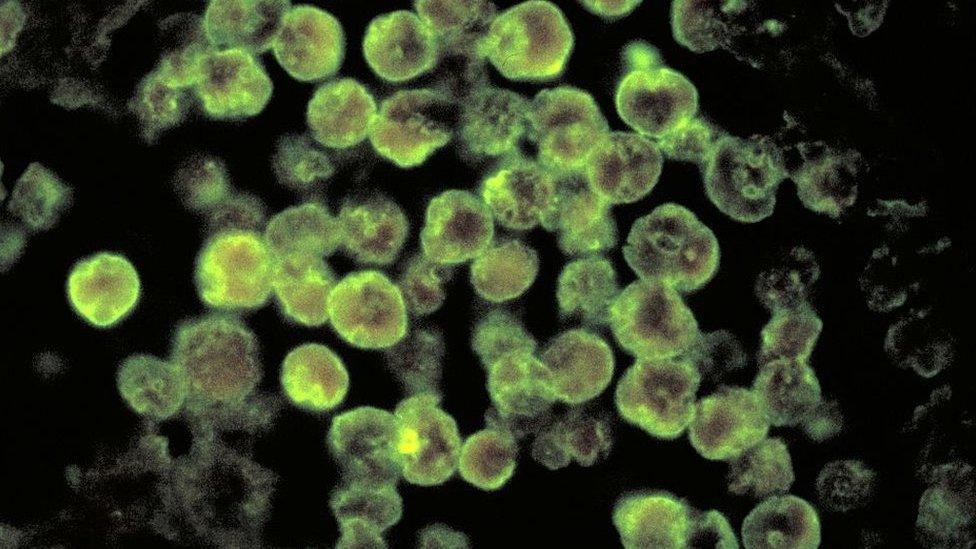Florida resident dies from brain-eating amoeba
- Published

A Florida resident has died after becoming infected with a rare brain-eating amoeba, officials say.
Health experts in Charlotte County, in southwest Florida, say the victim was probably infected after rinsing their nasal sinuses with tap water.
Naegleria fowleri infects the brain through the nose. Officials say that drinking it is not dangerous.
Infections are almost always fatal, according to the Centers for Disease Control and Prevention (CDC).
Officials have not identified the victim.
On 23 February, the Florida Department of Heath said that a patient had been infected "possibly as a result of sinus rinse practices" utilising tap water.
On Thursday, a spokesman for the state health agency confirmed that the patient had died.
Officials across multiple government agencies are "continuing to investigate how this infection occurred," spokesman Jae Williams said.
He added that officials are "working with the local public utilities to identify any potential links and make any necessary corrective actions".
The amoeba typically lives in warm fresh water such as swimming pools, lakes and ponds.
The person lived in Charlotte County, Florida, but has not been identified by officials
It can lead to a severe infection if it enters through the nose, but it is normally safe through the mouth because stomach acid kills the single-cell microorganism.
People who are infected contract a disease called primary amebic meningoencephalitis.
Symptoms include headache, fever, nausea, vomiting, disorientation, a stiff neck, a loss of balance, seizures and/or hallucinations.
According to the CDC, around three Americans get infected each year, often with deadly consequences.
Between 1962 and 2021, only four of the 154 people infected in the US survived.
CDC data suggests infection in winter months is incredibly rare.
Officials warn that to avoid infections people should not rinse out their nasal passages with untreated tap water.
Sterile or distilled water are preferred options. Tap water can also be used if it is boiled for at least one minute and cooled before use.
People are also advised to avoid taking on water in their nose while in swimming pools or bathing or showering.